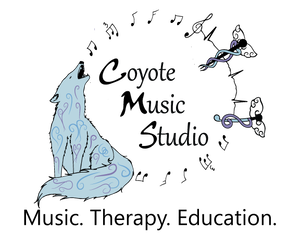|
If you're here reading this, then you're already interested in exposing your child to "good music" and you might be looking for complex or more interesting children's songs than Old MacDonald to share with your kids. The thing is, when singing with your baby you want to use Simple Songs and it's important that you YOU sing along too instead of just playing videos of others singing to your baby. Research shows that young children are more likely to imitate a person in front of them more than a person on a video and that they are more likely to imitate a family member over a stranger in front of them. Even with all my education, musical training, and pedagogical knowledge, your baby will imitate you faster than they will imitate me. So don't be afraid to sing with them, even if you think you can't sing. Besides, I truly believe that everybody who can speak CAN sing. It's true that some people seem to instinctively know what to do and sound better than others. However, in my 15+ years as a music therapist and 4 years as an elementary music teacher in a school of over 600 students, I have never once encountered a child who couldn't at least follow the shape of the notes with their voice and be trained to sing better. My personal theory is that because language itself is already musical (it has rhythm and limited melody or we sound like robots), our brains and ears are already trained to hear and imitate musical sounds. Some just do it easier than others. People who don't instinctively have correct vocal technique are ridiculed as children for not being able to sing so they stop trying. Yet children using correct technique, even if it's not perfect, are encouraged to continue. One group stops singing and one continues to practice their instrument so the divide between those who "can" sing and those who "can't" gets wider as they get older. And honestly, this is something that has developed from our elitist system of teaching Western classical music as if it's the only "good" type of music. Once we get away from this type of thinking and allow people to sing without ridicule, they get a chance to practice their natural instrument - and that's all you need: PRACTICE. So keep singing with your babies. They don't know you "can't" sing anyway: systems of music notes are a social construct that they have to learn no matter which culture they're born into. Let them enjoy your natural voice while all sound is still amazing them. The reason it's important to use Simple Songs when singing with young children is that they are able to pick up on the melody and words fairly quickly and their success encourages them to continue singing. This increases communication and social skills, which are important goals for this age. Using clapping and other body percussion (and of course, dancing) while singing encourages an increase in motor skills and proprioception (your sense of your body and how it moves in space). My classes are filled with singing, dancing, and playing instruments to encourage a whole body and whole brain experience. In my Early Childhood Music Classes for infants, toddlers, and preschoolers, I use a variety of children's songs, folk and traditional songs from around the world, symphonic music, Disney, and modern popular songs. However, the songs I use for encouraging vocalizations and singing are always simple in structure. One of the sources of curriculum I use is First Steps in Music by the Feierabend Association for Music Education, and they actually title one section in the teacher's books as "Simple Songs." Most of the songs in First Steps are generations old and can be found in a variety of sources but the way they've collected the songs and researched the lessons to be developmentally appropriate makes it a great source for music teachers and music therapists. Here are a few of my favorite simple and echo songs. Have fun singing and playing music! Had a Little RoosterA sequential animal song but not annoying like Old MacDonald. Frog in the MeadowFais DodoPitter, PatterNo More Pie
0 Comments
|
Coyote
|
Proudly powered by Weebly


 RSS Feed
RSS Feed